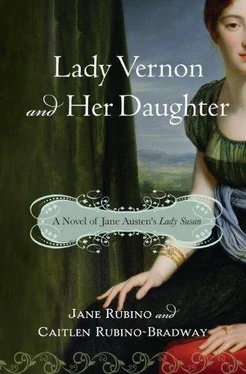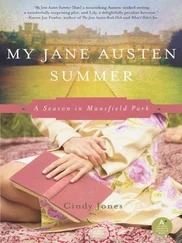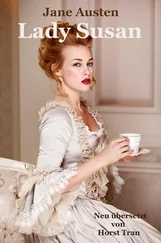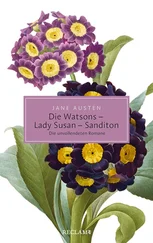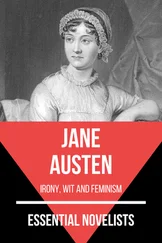In her present state, she cannot think of coming to town—even in her happiest disposition, London is odious to her, and with all of the talk of influenza, I do not think it would be a fit place for the children. In any case, we should likely no sooner be settled than my father’s spell of good health would give way, and we would all be compelled to return to Kent—but as you are no longer with the banking house, why may you not come to us?
Your devoted wife,
C. Vernon
This blow was a very mild one when compared to the next, for Sir Reginald’s valet, having emboldened himself to wish Mr. Vernon joy, was required to explain himself, which he did by providing the newspapers that proclaimed Lady Vernon, widow of Sir Frederick Vernon, had been safely delivered of a son and heir, and added a few lines about the alteration in the succession that this very interesting sequence of events must bring about.
Vernon’s response was utter disbelief. To have nothing, nothing at all—the heirs to Parklands both to marry—the surrender of his position at the banking house—the loss of Churchill Manor! To evade this responsibility became uppermost in his mind, and he immediately quit the house and made his way back to Parklands Manor, to throw himself upon the mercy of his wife and her mother.
The recent fluctuation in their family left them both vulnerable and eager to cling to anything like stability. Vernon had little difficulty in convincing them that they had been used very ill by Lady Vernon and her daughter, and to agree that the loss of eight thousand pounds would place a very great burden upon Kitty, Regina, and Frederick, when Lady deCourcy, who was very quick to understand anything in the way of profit or loss to her family, asked, “But will even that be theirs? Will you not be compelled to give back the whole sum to Sir Frederick’s heir? Unless some childhood illness or other carries him off, you will be obliged to restore all to him, will you not?”
It is best, for all parties who suffer from a tragedy, to not look too deeply into how far that misfortune came to be the source of a new happiness; thus, Lady Vernon did not dwell upon the circumstance that left her free to marry a second time. Sir Frederick was not forgotten—he could not be forgotten by those who had esteemed him so highly, nor could his memory fade in the presence of little James Frederick, whom Lady Martin declared the possessor of the Vernon forehead while Sir James maintained that he had the Vernon chin.
The devotion of Sir James and the steadiness and counsel of his mother persuaded Lady Vernon to amend the answer she had given to her cousin at Churchill. She did not oblige him to wait out the year, and three weeks after the birth of James Frederick, she and Sir James were quietly married. A month later, Miss Manwaring was wed to Lewis deCourcy in a modest ceremony, and before the season was out, the marriage of Frederica Susannah Vernon to Reginald Hamilton deCourcy was celebrated in a fashion that Alicia Johnson declared was “quite the jewel of the season.”
Mr. and Mrs. Reginald deCourcy settled happily in Staffordshire, where Frederica had the particular pleasure of renewing her acquaintance with the Clarkes and residing a very easy distance from the Martins at Ealing Park. Her intimacy with Maria did not suffer for the hundred miles between Vernon Castle and Bath—superior conveyances, excellent roads, and an affection between uncle and nephew, which had them always ready to promote the closeness of their wives, brought them together as often as they could wish.
In time, Frederica ceased to dwell with pain upon her father’s death, and though she must tolerate the occasional encounter with Charles Vernon in town or at Parklands, she beseeched her husband to support her in never having him at Vernon Castle.
In the coming year, Charles Vernon was to suffer a final humiliation: having lost Churchill Manor for himself, his line was further divided from Parklands when the Mrs. deCourcies were delivered of a young Reginald and a young Lewis, respectively. The two boys, born only a month apart, grew up to be the best of friends.
It is, perhaps, too indulgent to describe the course of Vernon’s mortification any further, but to spare his daughter from the effects of it as far as he could, Sir Reginald pledged himself to all that had been promised to Frederica and bequeathed to Churchill’s heir. Vernon’s reputation was restored as far as it could be, but all of his claims to money and property were gone, and he was obliged to return to Parklands Cottage with no hope of ever leaving it for those pleasant country visits or lively occasions in town that he had taken for granted while Sir Frederick had lived. Catherine and her mother were as little distressed by this turn of events as anybody could be—they mixed no more with the world than they had done in the early years of Catherine’s marriage, and so were spared the distress of hearing anything to Vernon’s discredit. They kept little company, went nowhere, and returned to a routine that was without variety or diversion and that seldom had them going beyond the lane that separated Parklands Manor from Parklands Cottage.
Sir Reginald could not think well of his son-in-law, and although he must maintain him at Parklands, he reserved his liberality for the children, and for Reginald and Frederica.
The necessity for someone to hold Churchill Manor back from a slide into serious neglect before the heir could come into possession of it was a matter of some discussion, and Lady Martin finally decided that she might yield the management of Ealing Park to her daughter-in-law and withdraw to Churchill Manor, where she resumed her usefulness, coaxing the farmers into productiveness and the neighbors into harmony and hurrying to the bedside of anyone who fell ill before they could summon the apothecary or the surgeon.
Miss Hamilton and her mother were deeply mortified by Reginald’s marriage, but as the word got round of Vernon Castle’s stateliness and beauty, they made a gesture of rapprochement in order to gain admission to the estate and kept up their friendship with Mrs. Lewis deCourcy so as to widen their acquaintance among the eligible gentlemen at Bath. Yet, despite all of Lady Hamilton’s determination to get them husbands, and her daughters’ thirty thousand apiece, many years were to pass before any offers of consequence came their way.
Lucy Smith and her husband were frequent visitors at Vernon Castle and Bath; they were always cheerful and affectionate, possessing the sort of good-natured exuberance that might settle into contentment or sink into imprudence and misfortune; the latter was to be their fate, but not for many years.
As for Manwaring, he drew a harder lot than mere folly merited, for having pursued every woman but his wife, he now came to think that only Eliza had suited him after all; she had been a capable mistress of Langford and the possessor of a fortune that brought him fifteen hundred pounds per annum without having to do anything much for it. She had no sooner won over Mr. Johnson and installed herself at Edward Street when Manwaring set about courting her, as energetically as he had done before their marriage.
Lady Susan was written by Jane Austen in the mid-1790s, when she had a body of lively juvenilia behind her and the first draft of what was to become Sense and Sensibility immediately ahead. The protagonist, Lady Susan (Vernon) “the most dangerous coquette in England,” is a beautiful widow with a daughter of marriageable age who descends upon her brother-in-law’s household after her flirtations have made her unwelcome at the home of her friends the Manwarings. Through a series of letters—principally between Lady Susan and her London friend Alicia Johnson, and Lady Susan’s sister-in-law, Catherine Vernon, and Catherine’s mother, Lady deCourcy—we derive a portrait of a protagonist who is both captivating and calculating, with the combination of a scintillating wit and self-interest that Austen would later employ in the character of Mary Crawford in Mansfield Park.
Читать дальше
